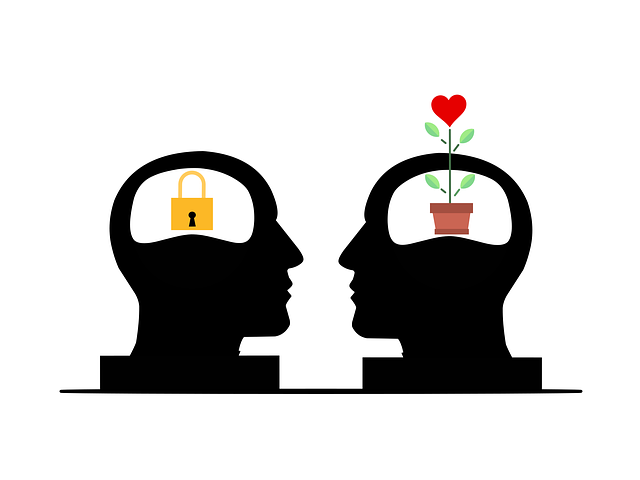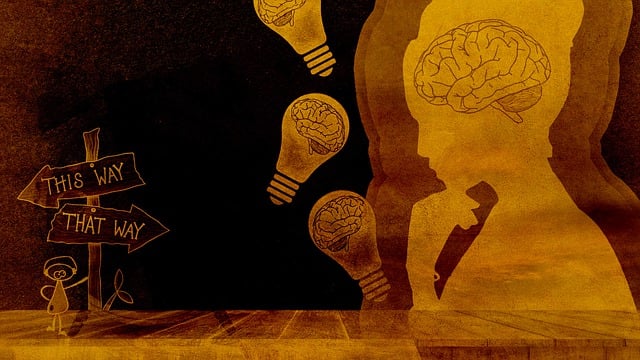Westminster Developmental Disability Therapy (WDDT) offers powerful mental wellness self-assessment tools, enabling individuals with developmental disabilities to take charge of their mental health. These structured frameworks, combining evidence-based practices and personalized support, help users track emotional states, thoughts, behaviors, and progress over time. By fostering self-awareness, resilience, and coping mechanisms, WDDT's holistic approach leads to improved outcomes and enhanced quality of life. Their process involves identifying needs, setting goals through journaling exercises, and integrating risk management for professionals, ensuring a supportive environment. These tools are developed with an inclusive, nuanced focus, incorporating cultural competency training and innovative techniques like mental wellness coaching programs, to create effective, up-to-date assessments that promote growth and recovery.
Mental wellness self-assessment tools play a pivotal role in understanding and managing personal well-being. This article explores the development of such tools, highlighting innovative approaches like Westminster Developmental Disability Therapy. We delve into identifying individual needs and setting goals for tailored care. Effective assessment frameworks are designed, emphasizing evidence-based methods. Additionally, implementation strategies and continuous improvement techniques ensure these tools remain impactful. Understanding these aspects, especially through the lens of Westminster’s unique perspective, can revolutionize mental health self-assessment.
- Understanding Mental Wellness Self-Assessment Tools
- Westminster Developmental Disability Therapy: A Unique Approach
- Identifying Needs and Goals for Individualized Care
- Designing Effective Assessment Frameworks
- Implementation and Continuous Improvement Strategies
Understanding Mental Wellness Self-Assessment Tools

Mental wellness self-assessment tools are designed to help individuals gain a deeper understanding of their mental health and well-being. These tools provide a structured way for folks, including those with developmental disabilities, to assess their emotional state, thought patterns, and behaviors. At Westminster Developmental Disability Therapy, we recognize the significance of empowering individuals to take charge of their mental wellness.
By utilizing these self-assessment tools, users can identify areas of concern, track changes over time, and make informed decisions about seeking support or implementing strategies for mood management. This proactive approach is especially valuable in promoting resilience and enhancing overall mental health. Moreover, these assessments can serve as a foundation for designing personalized Mental Health Education Programs, catering to diverse needs, including those within the Westminster Developmental Disability Therapy community.
Westminster Developmental Disability Therapy: A Unique Approach

The Westminster Developmental Disability Therapy (WDDT) is a groundbreaking approach that offers a unique perspective on mental wellness self-assessment. This therapy focuses on empowering individuals with developmental disabilities to take charge of their mental health journey, promoting self-awareness and resilience. By integrating evidence-based practices and tailored support, WDDT aims to enhance coping mechanisms and improve overall well-being. The program recognizes the importance of addressing burnout prevention strategies for healthcare providers working in this field, ensuring a sustainable and compassionate care environment.
Incorporating Mental Health Education Programs Design principles, WDDT educates participants about anxiety relief techniques and emotional regulation strategies. This holistic approach not only targets symptoms but also fosters an understanding of personal triggers and strengths. The result is an equipped and confident individual who can navigate life’s challenges with greater ease, paving the way for improved mental health outcomes and a higher quality of life.
Identifying Needs and Goals for Individualized Care

Identifying needs and goals is a crucial step in developing tailored mental wellness self-assessment tools. Westminster Developmental Disability Therapy emphasizes that each individual’s journey towards better mental health is unique, requiring personalized care. This process involves delving into their specific challenges and aspirations. By incorporating Mental Wellness Journaling Exercise Guidance, therapists can help clients articulate their emotional experiences, identify triggers, and set achievable goals for improvement. These insights are vital in creating an effective plan that addresses individual needs.
Additionally, Risk Management Planning for Mental Health Professionals is essential to ensure the well-being of both practitioners and their clients during this process. Through careful assessment, professionals can foster Emotional Healing Processes, guiding individuals towards managing their mental health effectively. This individualized approach not only enhances therapy outcomes but also ensures that care remains accessible and adapted to each person’s evolving needs.
Designing Effective Assessment Frameworks

Developing effective mental wellness self-assessment frameworks is a multifaceted process, especially when tailored for individuals with developmental disabilities as highlighted by Westminster Developmental Disability Therapy. These tools must be inclusive, sensitive to diverse needs, and adaptable to individual differences. The framework should encourage open dialogue and reflection, allowing users to explore their emotional well-being honestly and accurately. Incorporating evidence-based practices and theories ensures the assessments’ validity and reliability, enabling healthcare providers to deliver targeted interventions.
Inner Strength Development is a key component to consider. Assessing individuals’ coping strategies, resilience, and personal resources empowers them to take ownership of their mental health journey. Additionally, training healthcare providers on cultural competency, as offered by Stress Management Workshops Organization, is vital for creating safe spaces where users feel understood and respected during the self-assessment process. This holistic approach ensures that assessment frameworks not only identify challenges but also foster growth and recovery.
Implementation and Continuous Improvement Strategies

The development of self-assessment tools for mental wellness is an ongoing process that requires strategic implementation and continuous improvement to remain effective. At Westminster Developmental Disability Therapy, we utilize a multi-faceted approach to ensure our tools evolve with the latest research and user feedback. Regular training sessions are conducted to familiarize healthcare providers with updated best practices, fostering a culture of cultural competency (Healthcare Provider Cultural Competency Training). This involves integrating innovative techniques like Mental Wellness Coaching Programs Development to enhance client engagement and data collection accuracy.
Additionally, we encourage clients to actively participate in their therapy through Mental Wellness Journaling Exercise Guidance. By documenting thoughts, feelings, and progress, individuals gain valuable insights into their mental health trajectory. This practice is facilitated through user-friendly platforms that allow for secure data sharing, enabling therapists to provide tailored interventions promptly. Through these strategies, Westminster Developmental Disability Therapy strives to develop comprehensive self-assessment tools that promote sustained mental wellness.
Mental wellness self-assessment tools are pivotal in empowering individuals to take charge of their mental health. As demonstrated by Westminster Developmental Disability Therapy, a tailored approach can significantly enhance assessment accuracy and effectiveness. By identifying unique needs and setting individualized goals, these tools become essential for creating personalized care plans. Effective frameworks, when implemented with strategies for continuous improvement, ensure that these assessments remain dynamic and relevant in meeting the evolving mental health needs of diverse populations.











